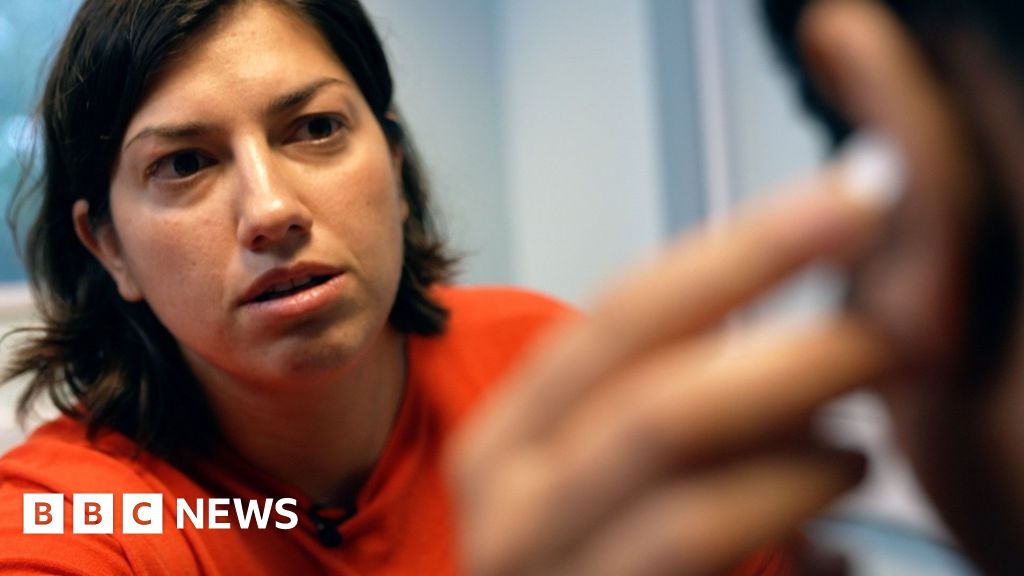
People who are lonely are more apt to have bad dreams, according to a collaboration that included an Oregon State University scientist.
The findings are important because both loneliness and sleep disorders are serious public health issues, said OSU’s Colin Hesse. They are connected to increased risk of heart disease, stroke and premature death.
In a paper published in the Journal of Psychology, Hesse and researchers at the University of Arizona, the University of Tampa and Whitworth University note that stress is part of the link between loneliness and both nightmare frequency and intensity.
Other factors tying loneliness to nightmares appear to be rumination—worry and anxiety—and hyperarousal, described as the state of being extra alert and focused. Like stress, rumination and hyperarousal are mind states associated with loneliness.
In addition to shedding light on a potential adverse effect of too little human connection, the findings of the study led by Kory Floyd of the University of Arizona are in line with the evolutionary theory of loneliness, which posits that a sense of belonging is essential to human survival.
“Interpersonal relationships are very much a core human need,” said Hesse, director of the School of Communication in OSU’s College of Liberal Arts. “When people’s need for strong relationships goes unmet, they suffer physically, mentally and socially. Just like hunger or fatigue means you haven’t gotten enough calories or sleep, loneliness has evolved to alert individuals when their needs for interpersonal connection are going unfulfilled.”
Loneliness is a pervasive condition that significantly hinders wellness, the researchers point out, causing suffering in a range of forms including impaired sleep. The experience of nightmares is one way that sleep quality is damaged.
The findings tying loneliness to nightmares—in a correlative way, rather than a causative one, Hesse stresses—come from surveys by the authors encompassing more than 1,600 adults in the United States, ranging in age from 18 to 81.
The results also offer an explanation for nightmares that’s rooted in evolution—humans evolved to experience stress, rumination and extra alertness when lonely—rather than environmental factors, such as having experienced some type of trauma.
“It’s too early to talk about specific interventions in a concrete sort of way,” Hesse said, “but our findings are certainly consistent with the possibility that treating loneliness would help lessen someone’s nightmare experiences. That’s a possibility to address in controlled, clinical studies.”
According to the Sleep Foundation, an estimated 50 million to 70 million Americans have some type of sleep disorder.
“Quality restorative sleep is a linchpin for cognitive functioning, mood regulation, metabolism and many other aspects of well-being,” Hesse said. “That’s why it’s so critical to investigate the psychological states that disrupt sleep, loneliness being key among them.”
The U.S. surgeon general’s office reports that even before COVID-19, about half of American adults reported measurable levels of loneliness, and that lacking connection is on par with smoking for raising the risk of premature death.
Statistics from the Surgeon General’s Advisory on Our Epidemic of Loneliness and Isolation include:
- A 29% increased risk of heart disease.
- A 32% increased risk of stroke.
- A 50% increased risk of developing dementia for older adults.
- A greater than 60% chance of premature death.
In addition, people who often feel lonely are more than twice as likely to develop depression than those who rarely or never feel lonely.
More information:
Kory Floyd et al, Interpersonal Loneliness Predicts the Frequency and Intensity of Nightmares: An Examination of Theoretic Mechanisms, The Journal of Psychology (2024). DOI: 10.1080/00223980.2024.2378418
Citation:
Loneliness linked to increased nightmare frequency and intensity (2024, August 6)
retrieved 6 September 2024
from https://medicalxpress.com/news/2024-08-loneliness-linked-nightmare-frequency-intensity.html
This document is subject to copyright. Apart from any fair dealing for the purpose of private study or research, no
part may be reproduced without the written permission. The content is provided for information purposes only.


